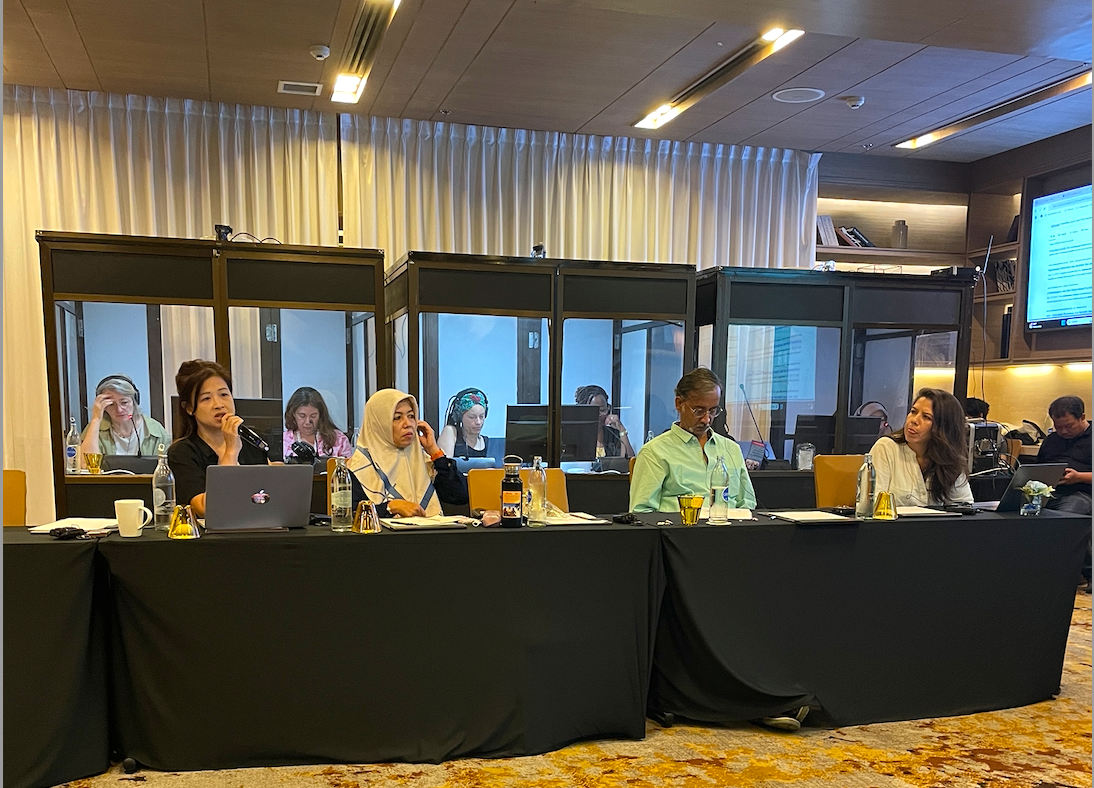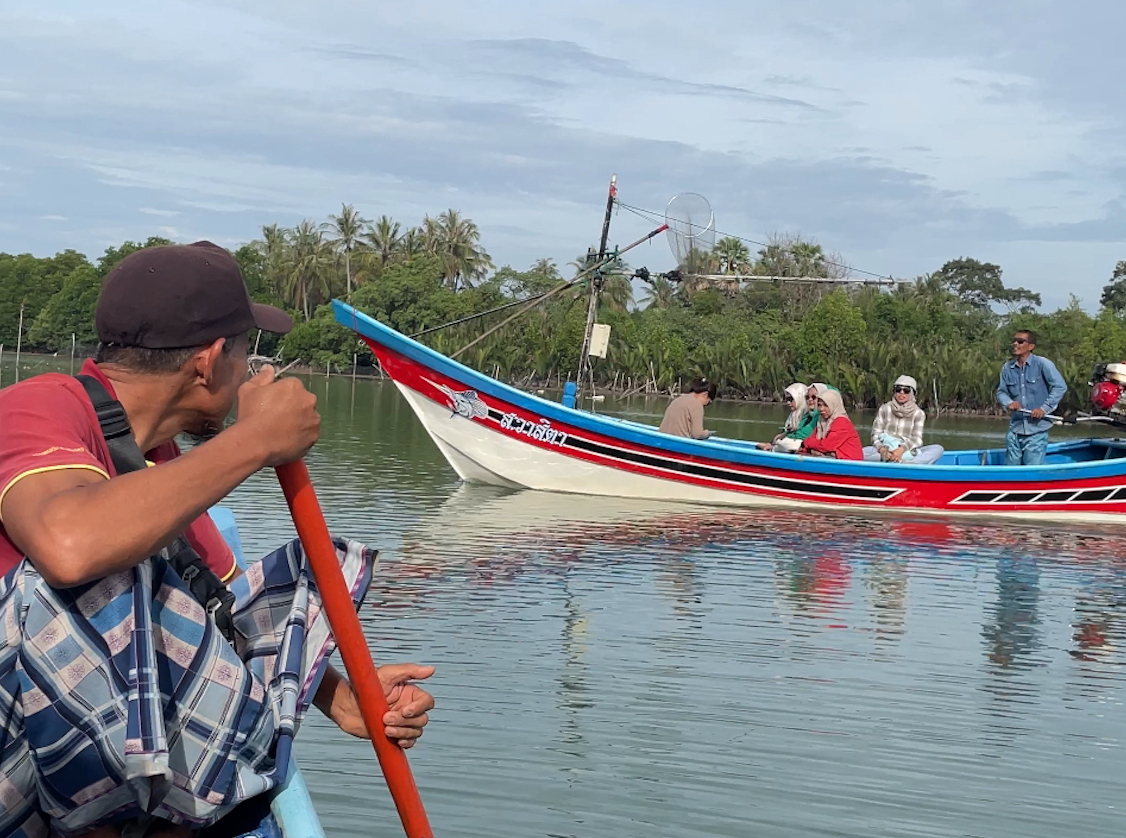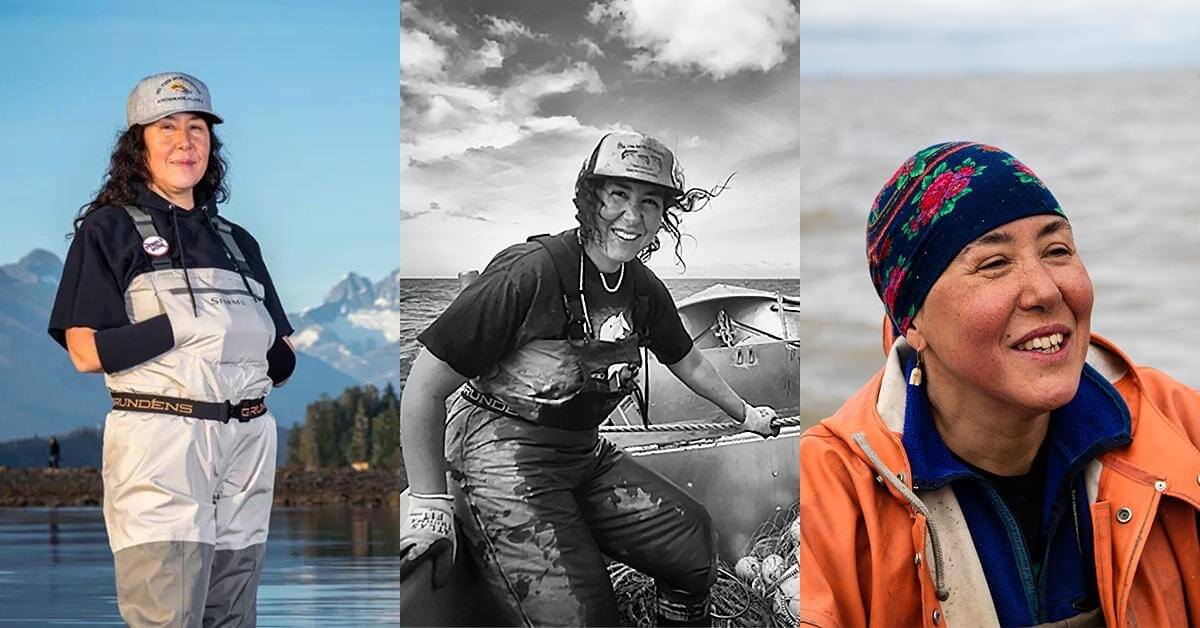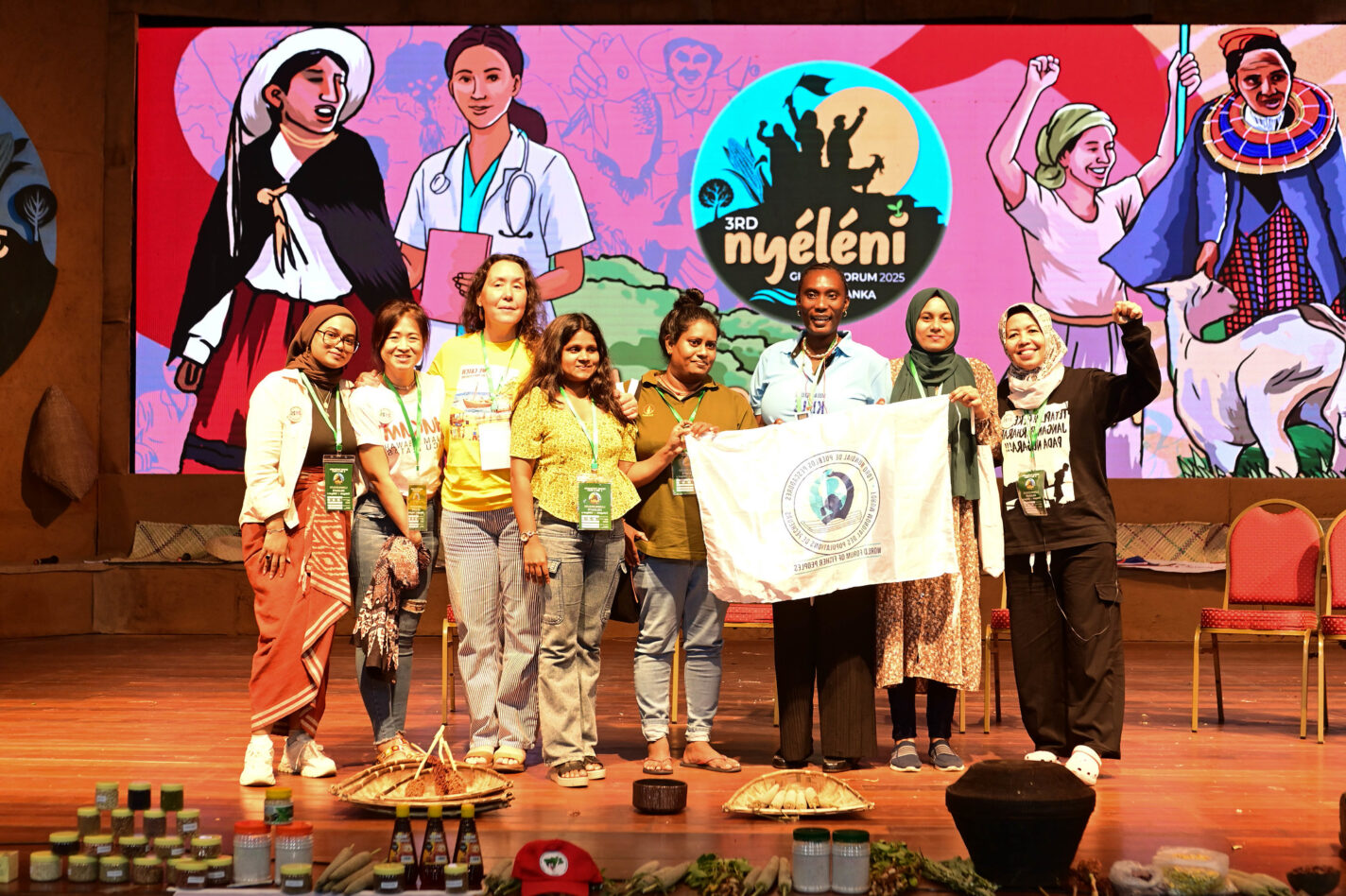By Melanie Brown, NAMA Board Member and Bristol Bay Fisherwoman
The past 12 months of my life have been a season of firsts. As a fourth-generation Bristol Bay fisherwoman and advocate for communities that depend on wild salmon, my recent work has carried me to fishing communities far beyond Alaska. Last November, I traveled to Brasilia, Brazil, to attend the 8th General Assembly of the World Forum of Fisher Peoples (WFFP) on behalf of NAMA, where I serve as a board member. That experience has launched me onto a path linking my Bristol Bay roots to a global community of people who produce, harvest, and protect food.
Just this past August and September, my work carried me to Thailand and Sri Lanka — the next steps in the journey that began in Brasilia. In Thailand, I met with and shared in the catch of fishing communities during the WFFP Coordinating Committee meeting and the first ever Global Fisherwomen’s Assembly (GFA). Then in September, I joined global delegates in Sri Lanka to chart a shared vision for food sovereignty at the Nyéléni Global Forum. These connections grew out of my deepening involvement with WFFP. Stepping up to this global platform has been an educational process akin to “drinking from a firehose,” as the saying goes.

That learning came to life in Thailand. After our committee meetings in Bangkok, the women present moved on to Hat Yai, Thailand to convene for the Global Fisherwomen’s Assembly (GFA). Over fifty women from around the globe came together to form an action plan for a five-week campaign highlighting the struggles and contributions to fisheries that fisherwomen of the world experience. Each week will be focused by a different theme, and the campaign will kick off on November 5th.
We took a day away from our formal GFA meetings in Hat Yai and connected with a fishing community in the Chana Coastal District. In the morning, we found ourselves aboard brightly painted fishing boats just upriver from the ocean mouth with fisherwomen and community leaders. It was a beautiful, unforgettable time that began with a breakfast of fish and rice with our hosts. After visiting the river we were brought to the ocean shore to exchange perspectives and enjoy a bountiful lunch from the sea. The visit to this fishing community, and hearing about the struggle to save their fishing grounds from a port expansion at the mouth of their home river, was a powerful reminder of the shared challenges fisher people face around the world. (I couldn’t help but think of my own fights to protect Alaskan waters from extractive projects, such as the proposed Pebble Mine in Bristol Bay.) A young woman protecting her home and fishing district with her father stood alongside older women who run their own boats and participate in all the work that fishing involves. It was a day of fellowship, perspective, and solidarity that expanded my understanding of why this global work matters.

Up until the Global Fisherwomen’s Assembly, I had been using the title “fisherman” to name what I do in association with operating my setnet site in Bristol Bay to fish for sockeye salmon. That title has represented my place amongst people who fish for a living that I always felt went beyond gender and represented the humanity of our trade. I still believe that to be true, but I also recognize the struggle for many women whose work is not recognized, so in solidarity with my sisters involved in fisheries around the world, I am now using the name “fisherwoman.”
In September, the Nyéléni Global Forum brought together people who are approaching food from the perspectives of small-scale farming, fishing, and herding in Kandy, Sri Lanka. WFFP played a big part in representing fisher peoples amongst a constellation of other global movements. Additionally, all of the participants were organized regionally into six global delegations, as well as four identity-based assemblies. Feini Yin, NAMA’s communications director, and I were there to bring both NAMA and WFFP’s voices into the written products of the Forum: a declaration and a Common Political Action Agenda.
Over the course of the weeklong Nyéléni gathering, we heard from delegates in plenary sessions and met as regional delegations, assemblies, and global organizations to identify what we felt was most important to contribute to the documents that will be finalized and shared in global policy making spaces. The aim is for positive shifts to happen that further our goals of realizing autonomy over how our food is produced and distributed. As my WFFP colleague and Ecuadorian fishing leader Lider puts it, “Food sovereignty means that we are the authors of our own existence.”

Some good news came about a proposal that WFFP and NAMA co-authored and submitted to the review committee at the Nyéléni Global Forum came toward the end of the gathering. The proposal pertained to a global campaign that WFFP is coordinating against industrial aquaculture, and Nyéléni has accepted the campaign as part of its common political action plan. This will be a good way to build on the work that NAMA has already been doing with DCO2.
Closing the forum in Negombo, where WFFP is headquartered with the Sri Lankan fishing organization the National Fisheries Solidarity Movement (NAFSO), was fitting and a good way to reflect on the intense week in Kandy before returning to my salmon life in Alaska.As I reflect on my experiences in Thailand and Sri Lanka, I’ve come to better understand how our local fights connect to global policymaking spaces. Meeting with the WFFP Coordinating Committee in Bangkok after my summer salmon season has furthered my understanding of how the pieces of engagement fit together.
The Small-Scale Fisheries Guidelines were drafted in Bangkok by a group of thoughtful fishing leaders many years ago and have been adopted at the United Nations level, but up to this point have not been ratified because they are voluntary. These guidelines continue to be presented to bodies and working groups that exist under the U.N. Food Committee and carried back to national-, regional-, and community-level fisheries in the hopes that they will be implemented by regulatory bodies for the benefit of small-scale fishers. In November, the Local Catch Network Seafood Summit will dedicate a session to exploring this. Additionally, the work of NAMA and WFFP aligns well when it comes to concerns around finfish aquaculture being treated as an answer to food security in U.N. bodies such as the Food and Agriculture Organization (FAO). WFFP is well positioned in these spaces to resist false solutions that are part of the Blue Economy agenda that dispossesses fisher peoples.
Main image: Some members of the Women’s Assembly, including Melanie Brown (3rd from left) stand on stage together at the 3rd Nyéléni Global Forum. The forum took place in Kandy, Sri Lanka in September 2025. Photo courtesy of the Nyéléni Global Forum.

